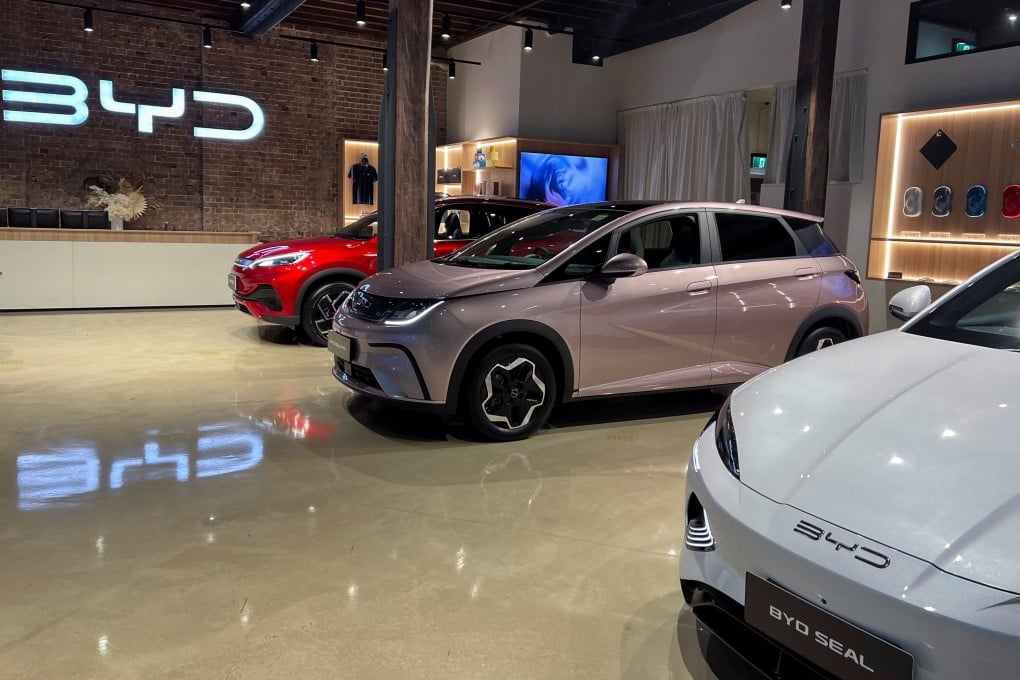With no spy concerns and tariffs, BYD and other Chinese EVs race ahead in Australia
- Australia is turning highly attractive to Chinese brands as it does not have a car manufacturing industry and is seen as unlikely to erect trade barriers
- BYD and its rivals have also launched new models in the country, which has aggressively promoted EV adoption to cut down on emissions

Since coming to power in 2022, Prime Minister Anthony Albanese’s government has aggressively promoted EV adoption as part of the country’s plans to cut down on emissions – a change that came after a decade of weak climate action under conservative leaders.
That’s created a powerful tailwind for electric car demand. EVs accounted for 7.2 per cent of Australian new car sales in 2023, up from 3.1 per cent a year earlier.
While Tesla too is greatly benefiting, it is the Chinese manufacturers in the non-premium end of the market which pose the biggest threat to incumbent carmakers like Toyota and Ford whose wide line-ups of petrol-engine cars mean they have more to lose.
Last year, sales for EV giant BYD, which entered the market in 2022, climbed nearly six times to more than 12,000 vehicles. It now has 14 per cent of Australia’s EV market, second to Tesla which has 53 per cent, data from the Federal Chamber of Automotive Industries shows.
“The opportunity is very clear,” said David Smitherman, chief executive at EVDirect, BYD’s distributor in Australia.